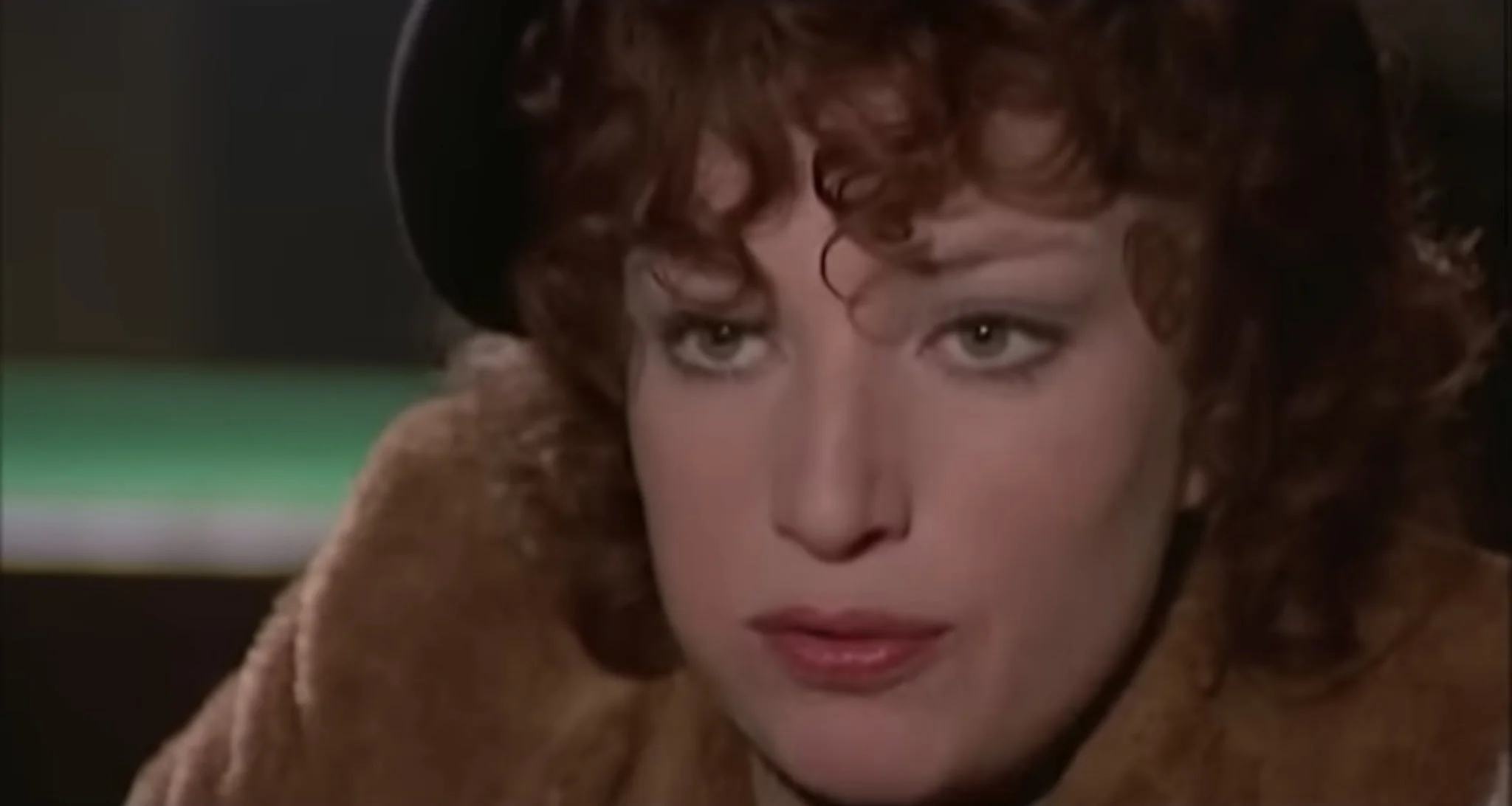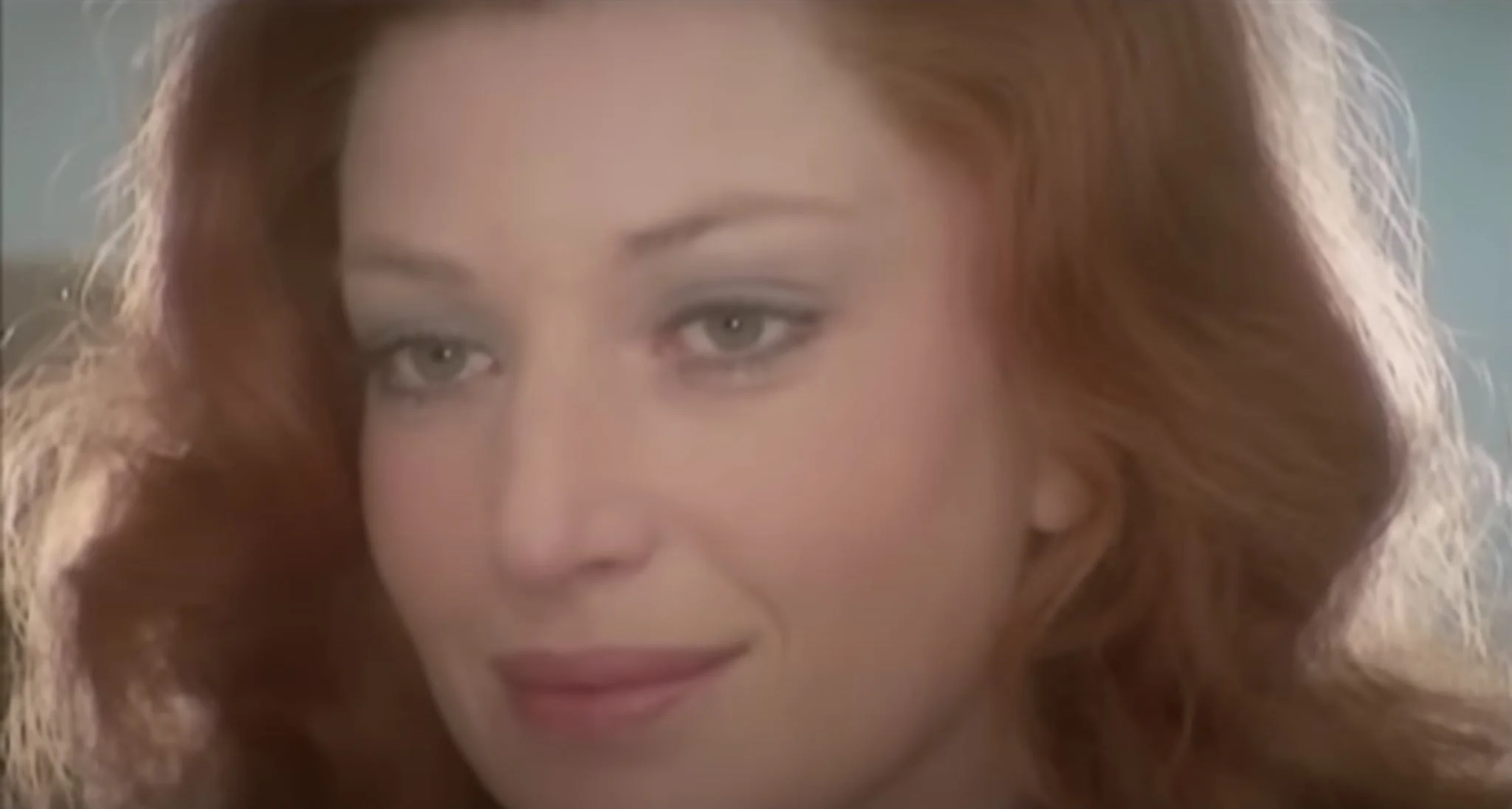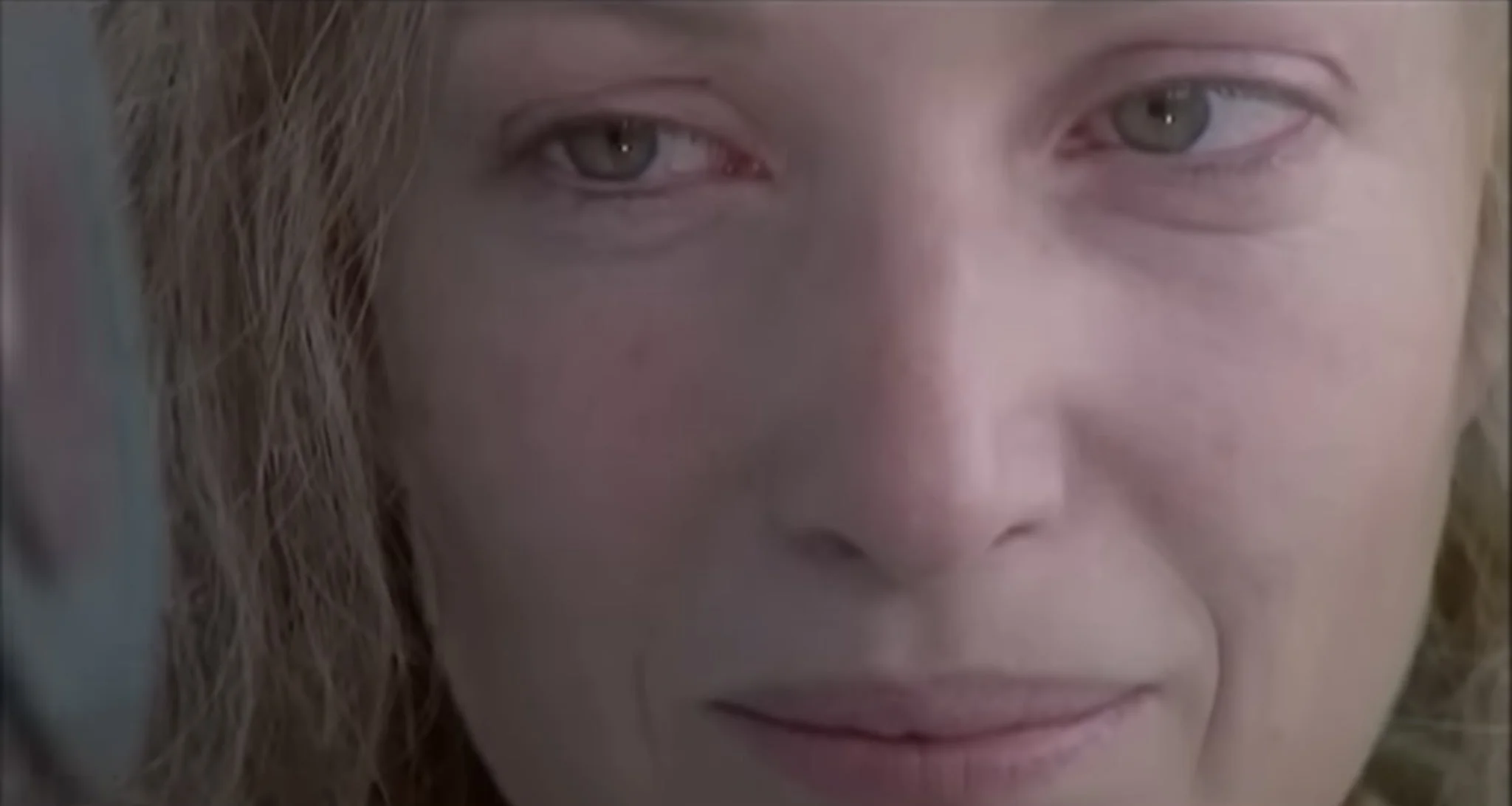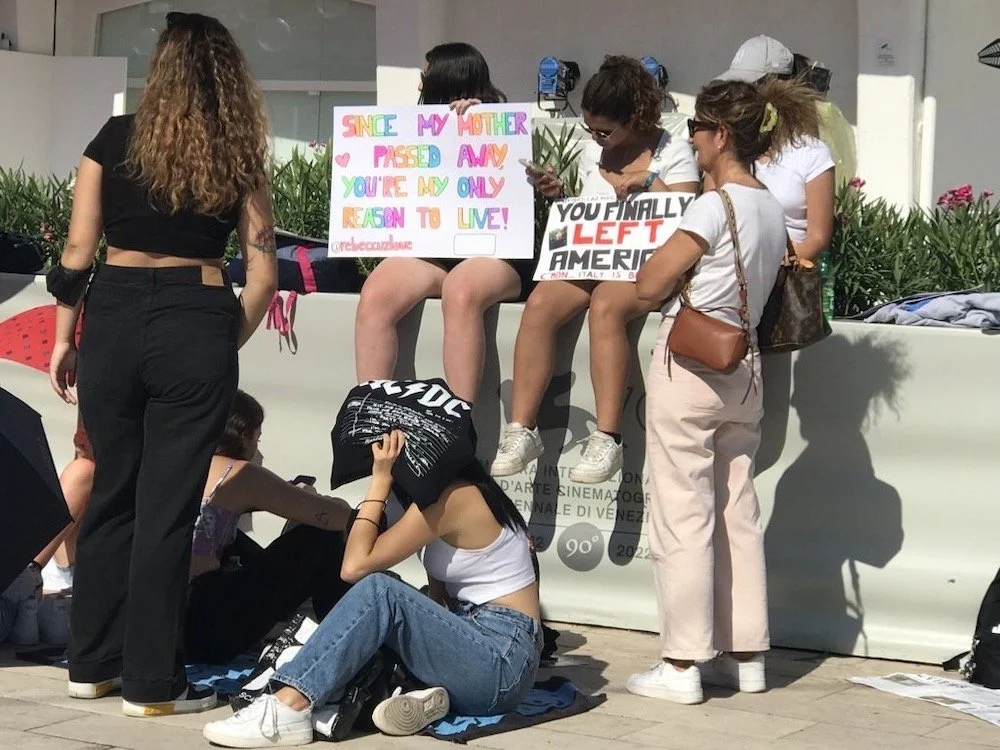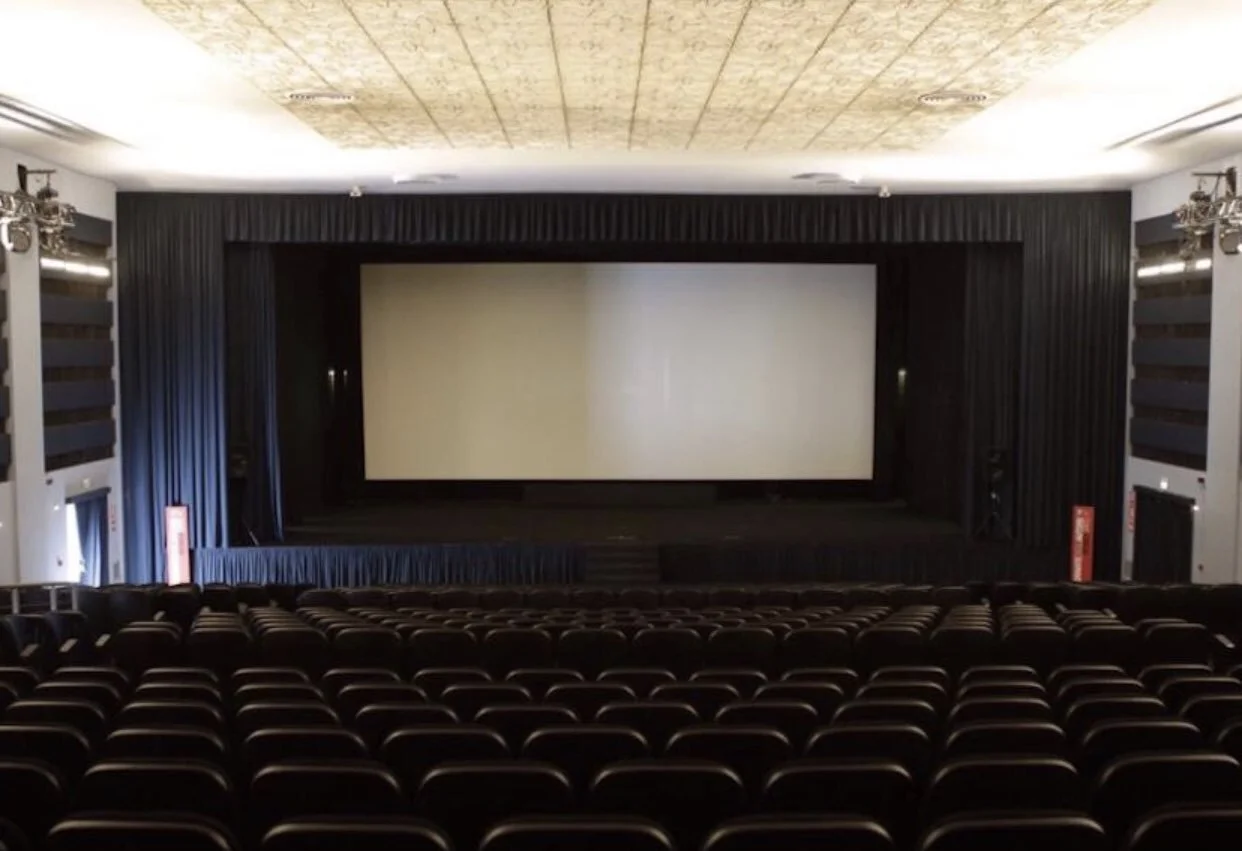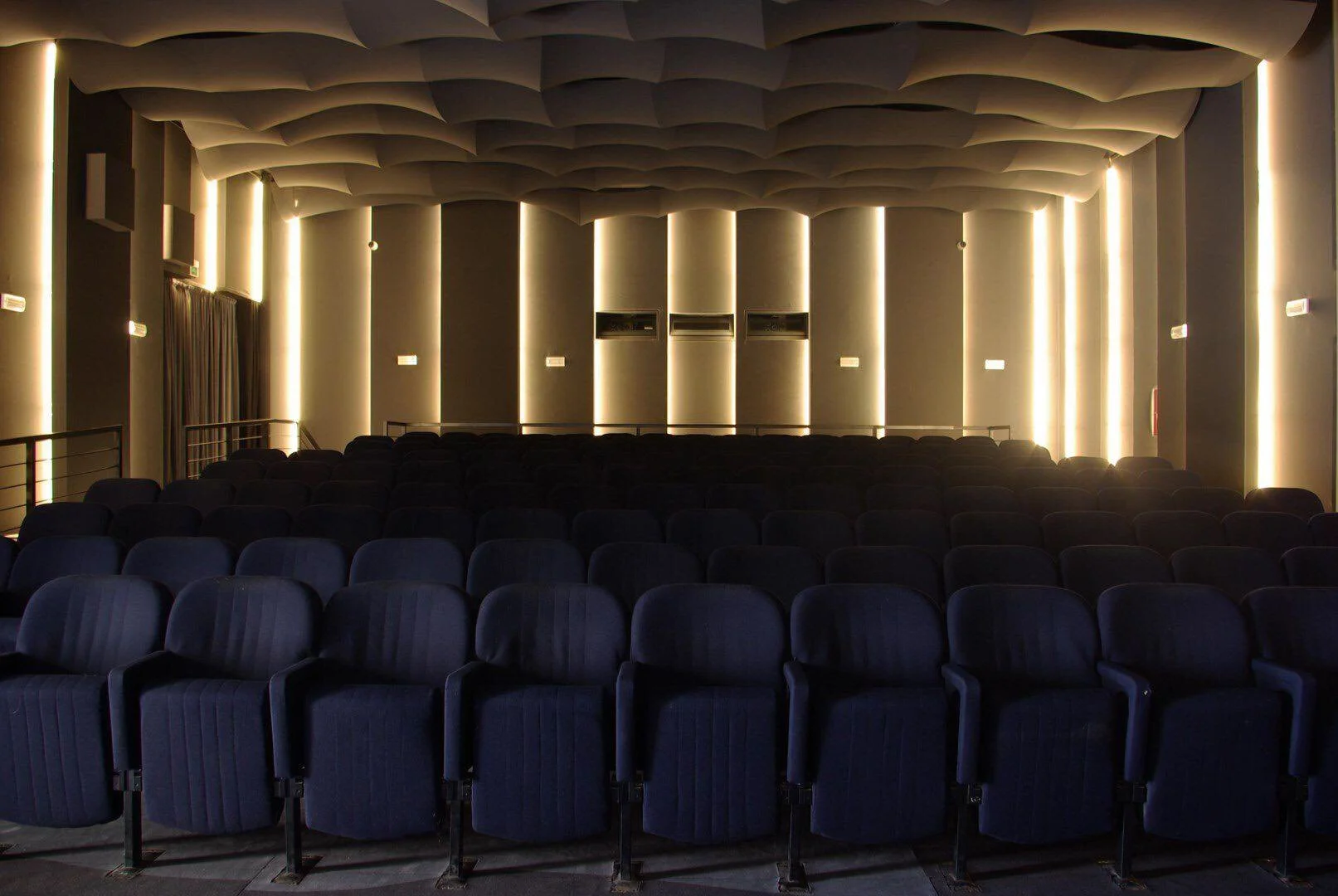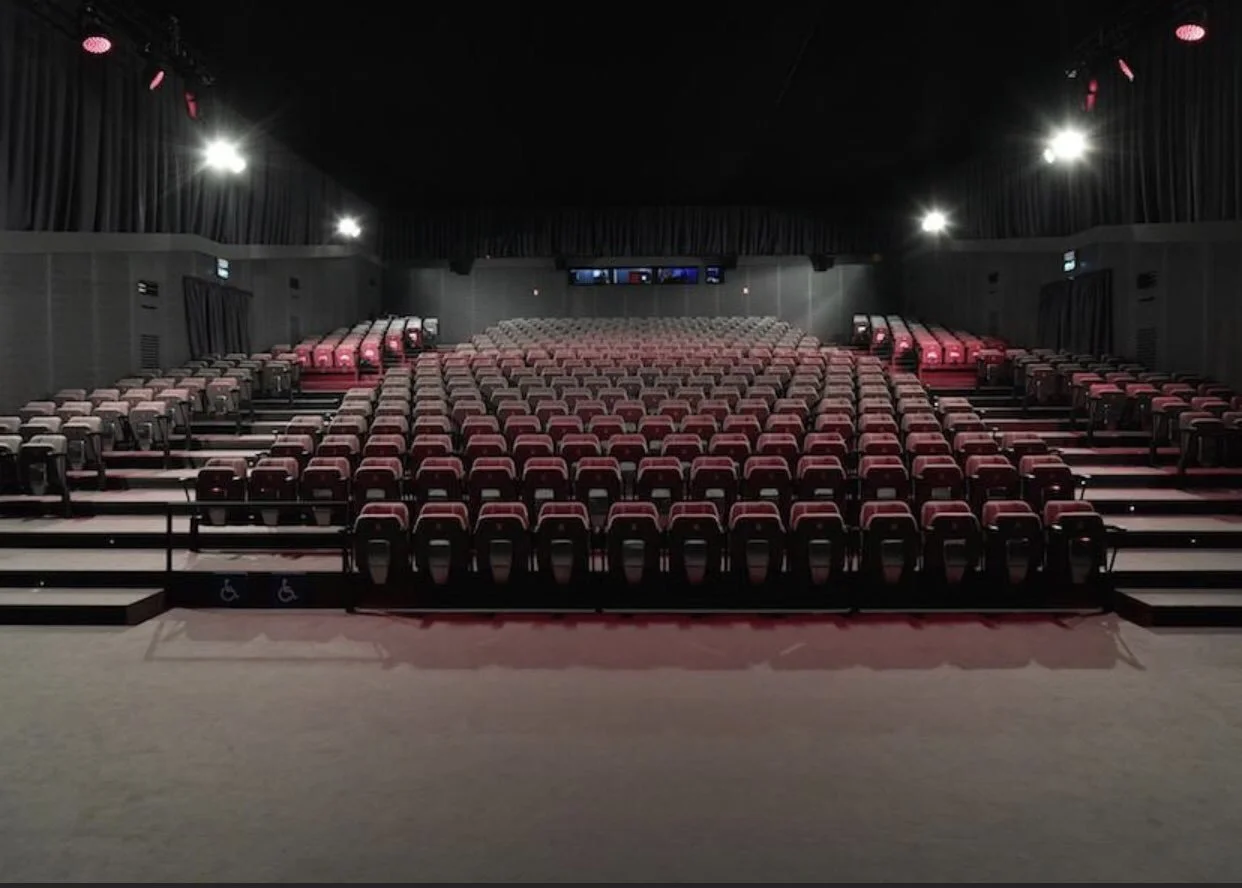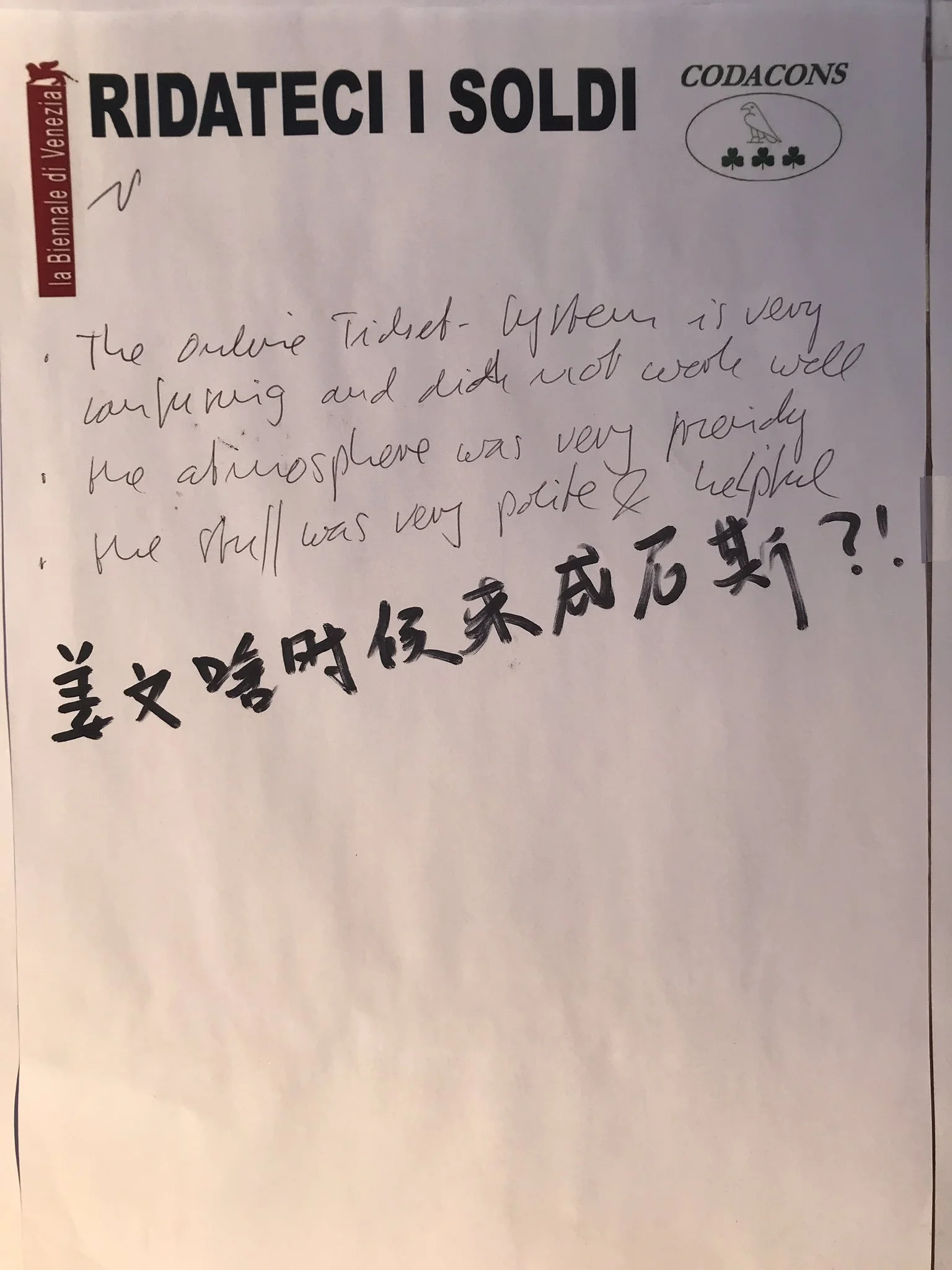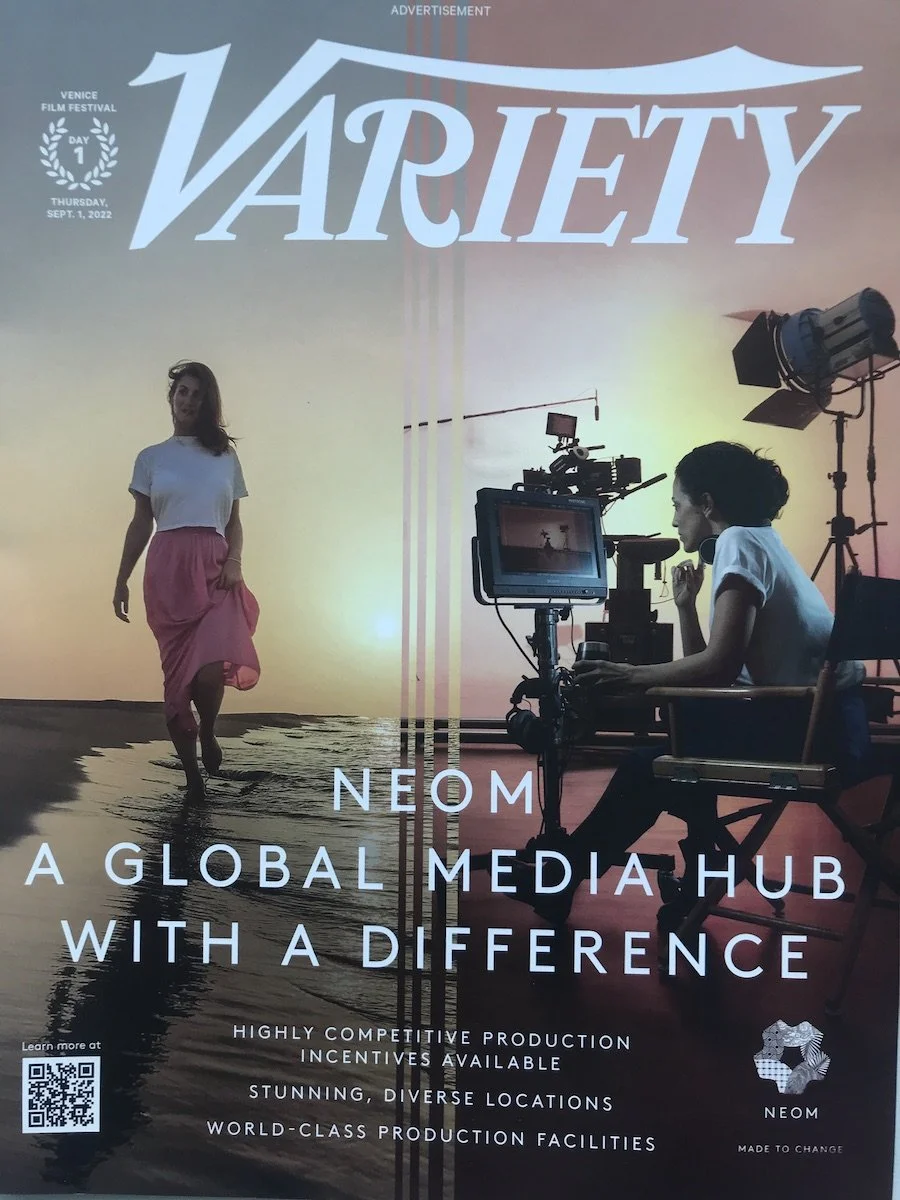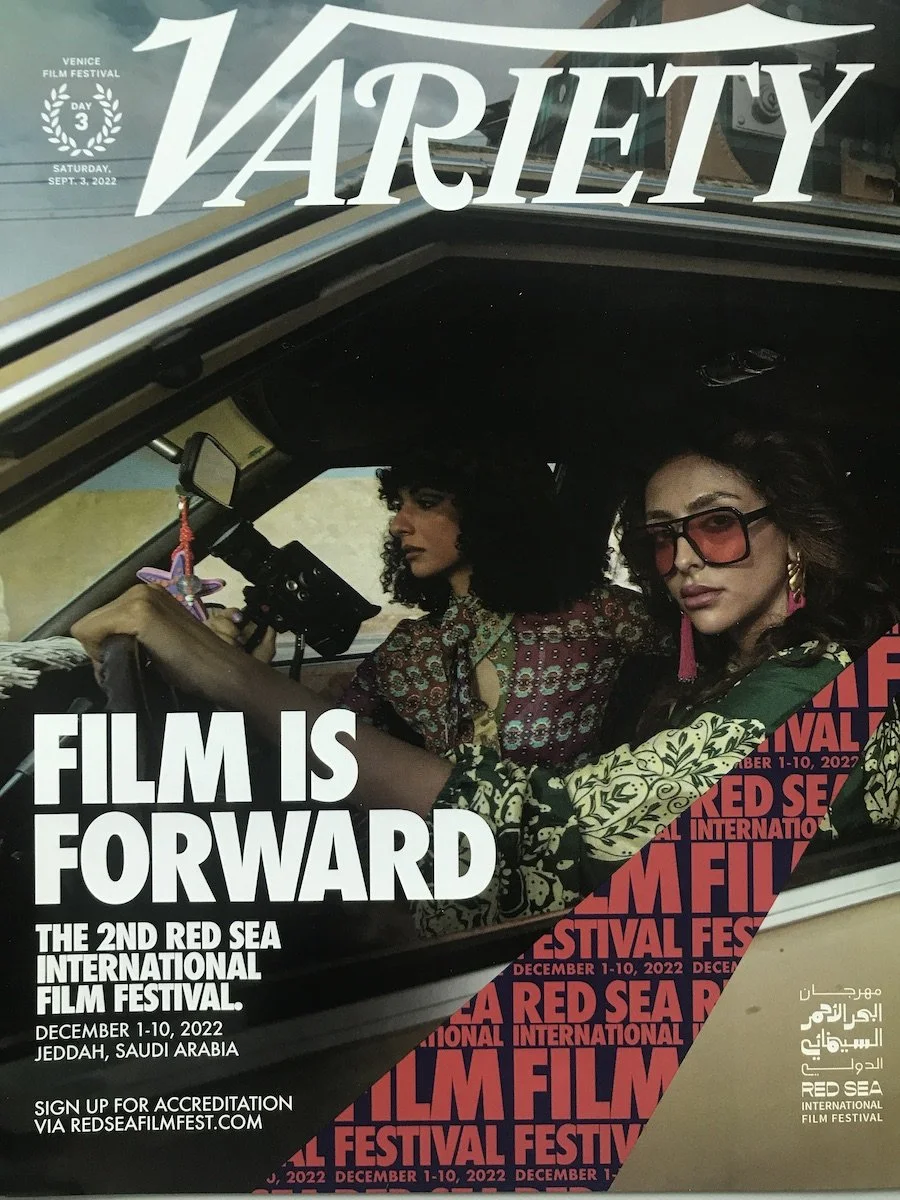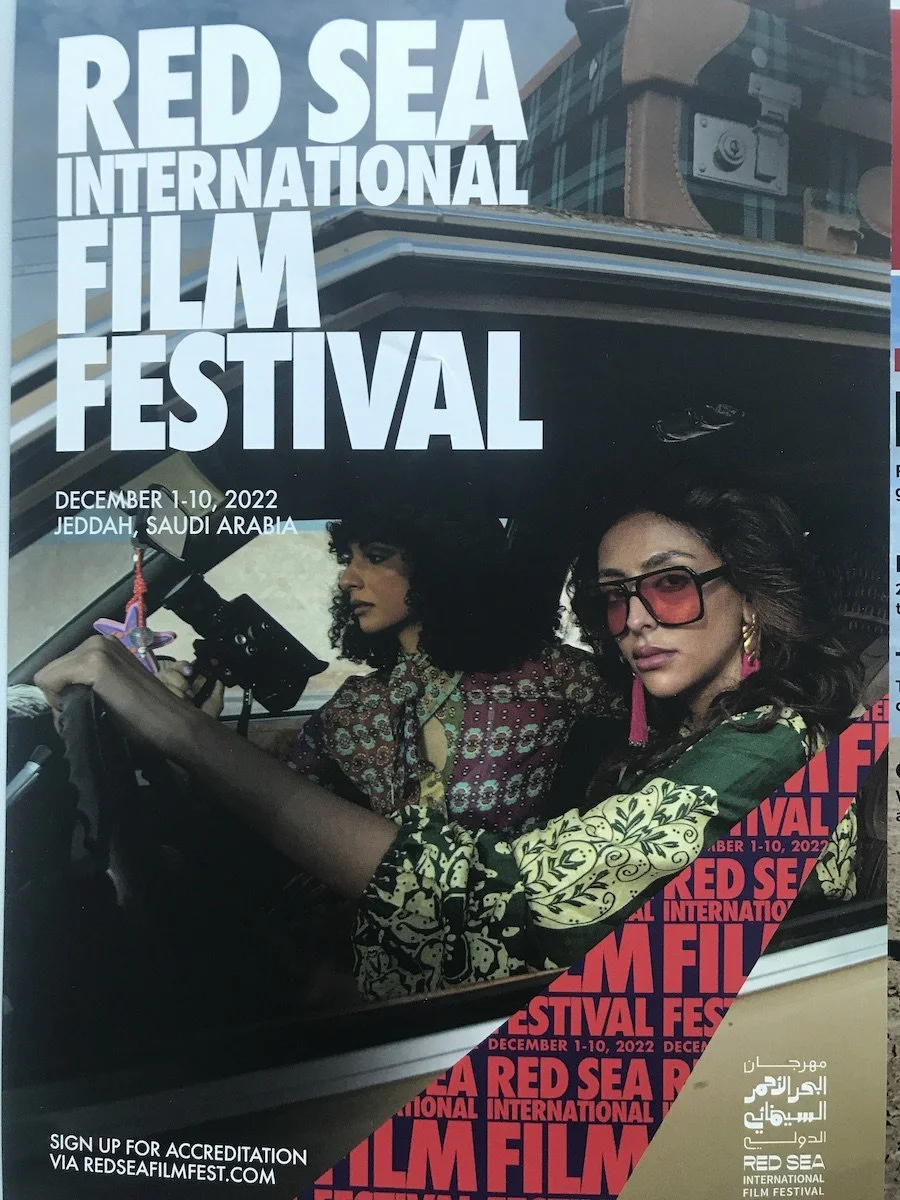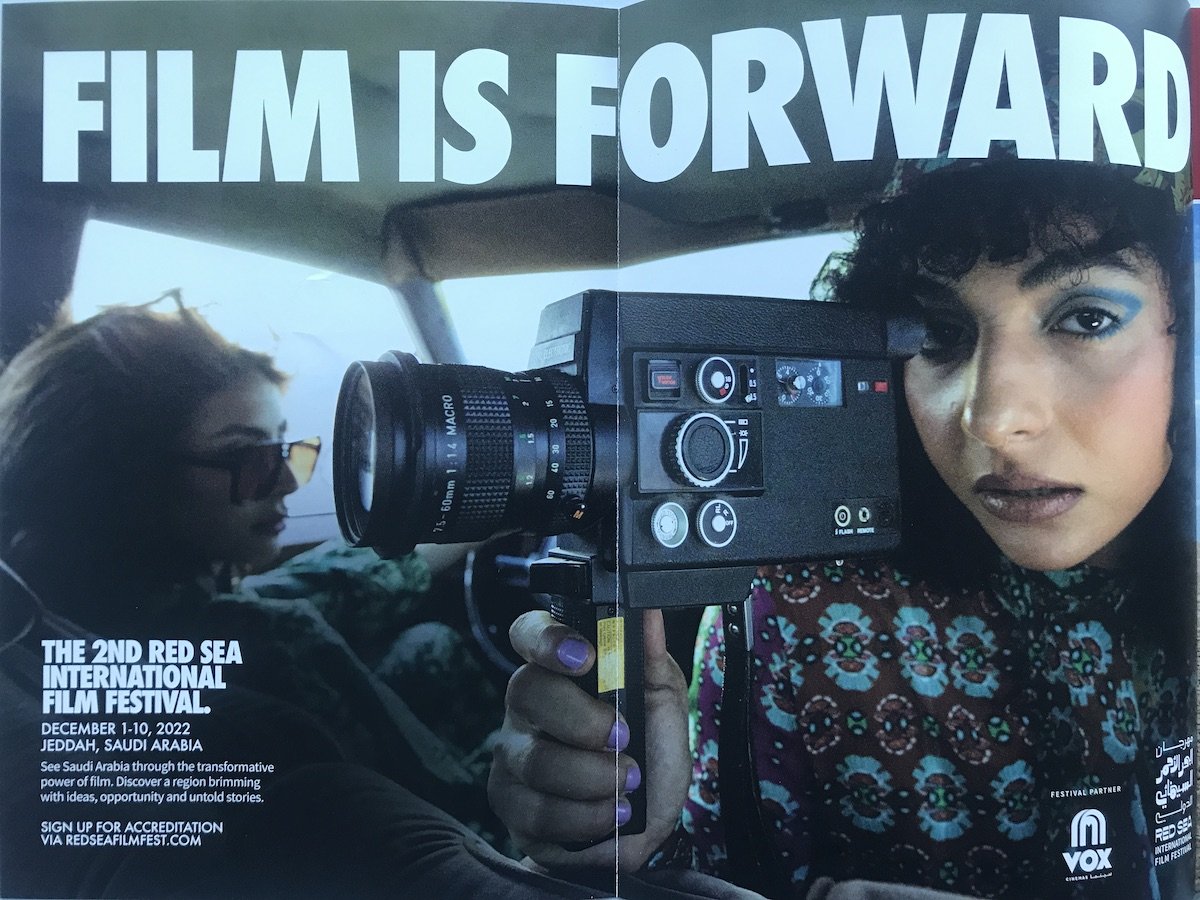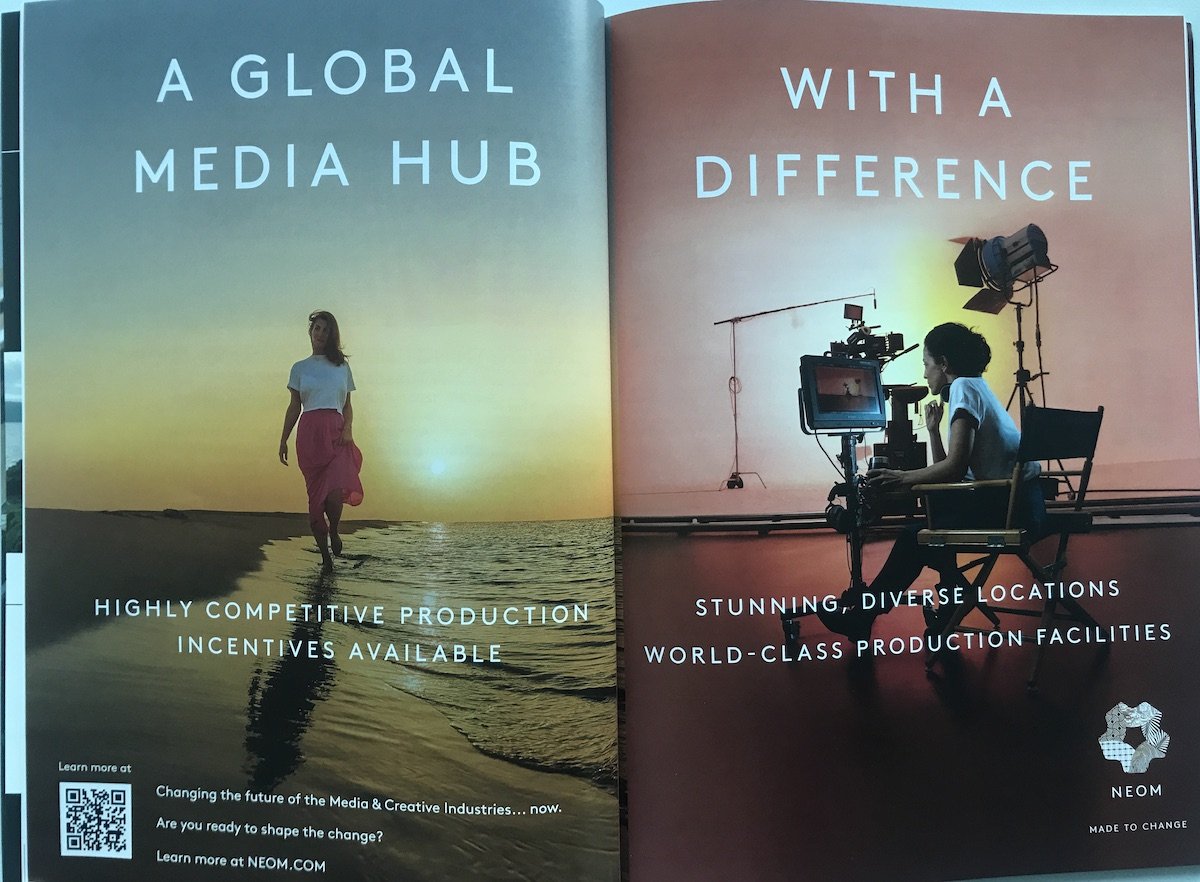BIENNALE CINEMA 2022 - ROUNDUP OF THE 79TH VENICE INTERNATIONAL FILM FESTIVAL
Compared to last year, this year’s 79th edition Biennale Cinema felt like it was back to ‘normal’ with full capacity seating inside the cinemas and no mandatory rules to wear masks, although many, including yours truly held on to our masks.
This time though I stayed in Lido and was much closer to the festival grounds (and the beach) which made it an even better experience for me. It did mean that I had to pay a lot more for accommodation, but it was worth it.
I posted a photo diary earlier in a separate post, and below is a roundup and highlights from this year’s edition.
On a pre-opening event the night before the festival we watched Stella Dallas (Henry King, 1925). It was the world premiere screening of the new 4K digital version restored by MoMA and the Film Foundation. It was accompanied by a film score composed for the occasion by Stephen Horne, commissioned by MoMA and performed live by the Gaga Symphony Orchestra.
About class divide in 1920s postwar America, not fitting in bourgeois circles, and a mothers’s sacrifice to ensure a happy and prosperous future for her daughter.
In 2020, I saw King Vidor’s Stella Dallas from 1937 starring Barbara Stanwyck which I think is the version most known, but after watching Henry King’s silent version, it’s my preferred one of the two, I found it more emotionally devastating - the birthday party that no one turns up to was particularly crushing. Stephen Horne’s score tugged our hearts at the right moments, moving audience members to tears.
From the festival’s website:
As the critic of Moving Picture World wrote in 1925, “There are few so blasé that they won’t feel a tug of the heart, a lump in the throat and moist eyelids while viewing Stella Dallas.”
My top new film from the festival was Tár (Todd Haynes). Starring Cate Blanchett as Lydia Tár, the over accomplished female chief music conductor of a major German orchestra, it is about power, sexual abuse, cancel culture, consequences, and ghosts.
[SPOILERS AHEAD]
Many (especially Americans) have decried the ending as problematic and racist. I found its depiction of people who restart their careers in places where they aren’t known or revered very apt. If you live outside the west, one will often come across variations of Lydia Társ, who follow new salaried jobs in countries considered by the West as less cultured and sophisticated, to establish themselves as voices of authorities in their fields.
In the film, after a reputation and career damaging reveal, Tár has lost her standing in the West, her former centre of the world. She is still trying to pursue the career she loves, but elsewhere. We see her conducting music from the video game Monster Hunter for fans dressed in cosplay in an unnamed country set in Southeast Asia. A game and music score that is far more revered by its audience, its renowned conductor Lydia Tar is secondary, and probably not a known name to them. My jaw dropped at the final shot.
Cate Blanchett’s performance is outstanding, she learned how to conduct an orchestra for the film. It wasn’t surprising she won Best Actress at the festival.
Saint Omer (Alice Diop) is another powerful and haunting film mostly set in a courtroom. Incisive and gut-wrenching, it follows the trial through the eyes of a writer researching her new novel, Rama (Kayije Kagame) of Laurence Coly (excellently performed by Guslagie Malanda), a young woman accused of killing her 15-month-old daughter by abandoning her to the rising tide on a beach in France.
It’s about migration, integration, empathy, mothers and daughters and intergenerational trauma. A line from the film (translated from French to English), “We are all chimeras. We carry the genetic and emotional traces of our mothers and our daughters — as will our daughters after us.”
The film won the Silver Lion and also the Luigi de Laurentiis Award for a Debut Film (which was odd because Diop has directed 3 feature length documentaries before, which are somehow not considered ‘films’ by the festval).
Speaking of which, the festival’s top prize, the Golden Lion for Best Film went to a documentary, All the Beauty and the Bloodshed (Laura Poitras).
About artist and activist Nan Goldin, the film is more of a collaboration between Poitras and Goldin rather than a film authored by its director.
We learn about Nan Goldin’s past as an artist and her current role as an activist fighting to hold the Sackler family accountable for the opioid crisis, and protesting at museums who receive financial donations from them, at times threatening the museums by not allowing them to show her works.
The personal and the political go hand in hand with Nan Goldin, who even as an artist stood by the marginalised.
Personal stories about her childhood and family, especially her sister Barbara are quite revealing and helps audiences better understand who Nan Goldin is and what she stands for.
For people who aren’t familiar with her works, the film includes a lot of her well known photography series, including her famous slide show, The Ballad of Sexual Dependency which is normally viewed in museums and somehow worked on the big screen.
Paul Schrader received the Golden Lion for Lifetime Achievement at the festival. His latest film, Master Gardner was in the Out of Competition section. I was hoping the festival would include his film The Comfort of Strangers, a film set in Venice, in the Venice Classics section, but alas…
This is an extract from Sigourney Weaver’s speech at the award ceremony, you can read the complete version here:
Over the years Paul has created a series of character studies called the “Lonely Man” or “Man in the Room” series about self-isolated men superficially defined by their profession: taxi-driver, gigolo, drug dealer, society walker, reverend, card player and, tonight, gardener. These men sit in their rooms, write their thoughts, go from place to place, waiting for a change to come.
If you think this sounds more like the career of a European director, you are right. For fifty years, Paul Schrader has written on spec, worked without subsidies and developed his own projects. He has worked within the system. When the system changed, he worked outside it, all the while becoming a beacon for young American filmmakers. It is possible to carve out a personal career in commercial cinema, possible to serve God and mammon, possible to work intellectually as well as emotionally, possible to get your vision made and seen.
The protagonist in Master Gardener is Narvel Roth (Joel Edgerton), another isolated character by Schrader - a horticulturist at Gracewood Gardens, an historic estate owned by Norma Haverhill (Sigourney Weaver). When Mrs Haverhill suggests that her troubled and “mixed blood” great-niece Maya (Quintessa Swindell) comes to the estate to learn from Narvel as his new apprentice, things change for him. Violent pasts, troubled present and hopeful futures collide. I found it to be one of Schrader’s most tender and optimistic films. “Gardening is the belief in the future.”
More tenderness was felt from his masterclass at the festival which was live streamed. The hour long session ended with him saying, “I used to be an artist who never wanted to leave this world without saying f*ck you, and now I’m an artist who never wants to leave this world without saying I love you.”
It’s a reference to a lyric from a song featured in Master Gardener.
You can watch the complete masterclass below.
Another film by a director who has had to work outside the system is No Bears (Jafar Panahi).
Prohibited from traveling and banned from making films since 2010, he has managed to find ways to make films and smuggle them out of Iran. But a couple of months before the festival in Venice, he was arrested and received a six-year prison sentence when he visited the Tehran prosecutor’s office on July 11 to follow up the cases of Iranian filmmakers Mohammad Rasoulof and Mostafa Aleahmad, who were arrested on security-related charges. Soon after, mass protests erupted across Iran over the mandatory hijab rules.
Panahi’s films are acts of resistance, and one can’t not think about this real life cruelty whilst watching his latest film about a fictionalised film director (performed by Panahi) trying to make a film in a remote village in Iran close to the borders of Turkey using his laptop and wifi to film actors in Turkey.
No Bears is a film about border crossing, dangerous consequences of photography and filmmaking, and a normalised culture of fear and intimidation.
The film won Special Jury Prize.
Other film highlights:
The Banshees of Inisherin (Martin McDonagh), about friendships, break-ups, letting go and moving on. It’s funny, moving, melancholic and devastating. Colin Farrell won Best Actor and the film won Best Screenplay.
Trenque Lauquen (Laura Citarella) a 260-minute two-part film told in 12 chapters about the disappearance of Laura (Laura Paredes) with one mystery leading to the next, it’s an intimate film that wonderfully combines mystery solving, comedy, romance, sci-fi and the supernatural. I watched the two parts in one night with a short break in between and didn’t feel the time. Good score by Gabriel Chwojnik too.
Dry (Paolo Virzì) set in n Rome where it hasn’t rained for three years and water is rationed. An ensemble cast, a Trump-like rich family that have access to all the water they need a satirical apocalyptic eco-melodrama I thought more people would talk about.
Other thoughts:
Two films that left me feeling bitter, Athena (Romain Gavras) - despite its epic 10 min one track opening , the last scene reduced it to a copaganda, and Don’t Worry Darling (Olivia Wilde) - its so called twist was disappointing and anti-feminist.
”Arseholes are happy, good people are miserable”, a line from The Listener (Steve Buscemi).
The return of Restored Classics. One standout was watching a devastating performance by Monica Vitti in Teresa La Ladra (Carlo Di Palma, 1973). (I also felt bad for the man who couldn’t buy a ticket for the film because the website was only allowing bookings for pass holders and there was no physical box office for the public to buy tickets. There were rows of empty seats, and I wished I was able to sneak him inside the theatre with me.)
The tween fans of Harry Styles all over the festival grounds waiting to see him on the day of the premier of Don’t Worry Darling (Olivia Wilde).
Walking by Tilda Swinton on her way to the red carpet screening of The Eternal Daughter (Joanna Hogg). My heart skipped a beat.
Favourite cinema halls: Darsena, Perla, Volpi, Giardino, Pasinetti (but only if sitting in the 1st row)
Least favourite cinema halls: Corinto, Casino
Photos are from La Biennale’s website.
The wall of Scathing Reviews, all film festivals should do this. Related to the booking system, I was amused by this scathing review of the festival’s online booking system Vivaticket, “fascismo digitale”.
From my personal experience, when Vivaticket worked, it was fine (and I liked that booking was staggered over a few days), but when it didn’t work, it was terrible. It also needs a better navigation structure.
You can see more photos from this wall in my festival photo diary post.
On the second day of the festival, I noticed the back cover of Variety had a full page decrying the current state of cinema, film distribution, streaming, movie theatres and film festivals. With several Netflix films premiering at the festival - many of which will not get a theatrical release, I was struck by this line about film festivals as a launching pad for streamers, “…they start giving more and more space to films made for platforms, for the well-known PC screen. And the purpose of the platform is obviously to enrich itself by increasing its users, certainly not the cinema or festival audience.”
The complete text can also be found on gsamsa.com. It is not clear to me who wrote the text (and paid for it to appear on the back page of Variety as an ad space?) and who is behind the website G.Samsa - New Film Journal. The same account is also on Instagram as “Gregory Samsa” (Gregor Samsa is the name of the character in Franz Kafka's The Metamorphosis). When I asked around, one film producer said it sounds like it is written by someone whose film was rejected at this (or other festivals). Regardless of who or why, there’s a lot of valid concerns in this text.
It was hard not to notice how much money was spent by Saudi Arabia to promote its second edition of The Red Sea Film Festival and NEOM’s production facilities and film locations.
This year’s theme is “Film is Forward” (last year it was “Waves of Change”). The girlboss trope is back.
There was also advertising everywhere I turned at Venice Airport, but at that stage I couldn’t be bothered to phoptograph what I saw for the blog. But it did make me wonder how beneficial or effective is this type of blanket advertising.
A list of all the films I watched at the festival:
PRE-OPENING NIGHT
Stella Dallas (Henry King, 1925)
COMPETITION
All the Beauty and the Bloodshed (Laura Poitras)
Athena (Romain Gavras)
The Banshees of Inisherin (Martin McDonagh)
Chiara (Susanna Nicchiarelli)
A Couple (Frederick Wiseman)
BARDO, False Chronicle of a Handful of Truths (Alejandro González Iñárritu)
Blonde (Andrew Dominik)
Bones and All (Luca Guadagnino)
The Eternal Daughter (Joanna Hogg)
Monica (Andrea Pallaoro)
No Bears (Jafar Panahi)
Our Ties (Roschdy Zem)
Saint Omer (Alice Diop)
The Son (Florian Zeller)
TÁR (Todd Field)
The Whale (Darren Aronofsky)
White Noise (Noah Baumbach)
OUT OF COMPETITION - FICTION
Dead for a Dollar (Walter Hill)
Don’t Worry Darling (Olivia Wilde)
Dreamin’ Wild (Bill Pohlad)
Dry (Paolo Virzì)
Master Gardener (Paul Schrader)
Pearl (Ti West)
OUT OF COMPETITION - NON-FICTION
A Compassionate Spy (Steve James)
The Kiev Trial (Sergei Loznitsa)
ORIZZONTI COMPETITION
On the Fringe (Juan Diego Botto)
Trenque Lauquen (Laura Citarella)
World War III (Houman Seyyedi)
ORIZZONTI EXTRA
Hanging Gardens (Ahmed Yassin Al Daradji)
Nezouh (Soudade Kaadan)
VENICE CLASSICS - RESTORED FILMS
Theorem (Pier Paolo Pasolini, 1968)
Canyon Passage (Jacques Tourneur, 1946)
Crazy Desire (Luciano Salce, 1962)
The Black Cat (Edgar G. Ulmer, 1934)
Branded to Kill (Seijun Suzuki, 1967)
A Confucian Confusion (Edward Yang, 1994)
Teresa the Thief (Carlo Di Palma, 1973)
VENICE CLASSICS - NON-FICTION
Fragments of Paradise (KD Davison)
Ragtag (Giuseppe Boccassini)
BIENNALE COLLEGE CINEMA
Palimpsest (Hanna Västinsalo)
GIORNATE DEGLU AUTORI / VENICE DAYS
Dirty, Difficult, Dangerous (Wissam Charaf)
The Damned Don’t Cry (Fyzal Boulifa)
The Listener (Steve Buscemi)
SETTIMANA INTERNAZIONALE DELLA CRITICA / CRITICS’ WEEK
Queens (Yasmine Benkiran)







